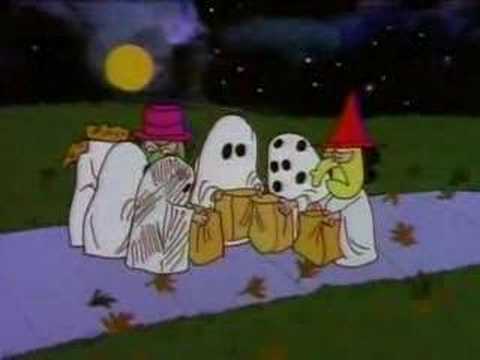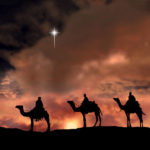Lightning In A Bottle
I’m going to keep this simple today. What makes a bestseller? What makes you want to pick up a book, keep reading it, and then recommend it to your friends after you’ve finished it?
Fred Warren on Nov 22, 2011 ·
No comments
” I got a candy bar.”
“I got a popcorn ball.”
“I got an apple.”
“What about you, Charlie Brown? What did you get?”
“I got a rock.”
I’m going to keep this simple today. What makes a bestseller? Why does one writer catch lightning in a bottle while another of comparable (or even superior) skill and talent can’t give their book away? What makes you want to pick up a book, keep reading it, and then recommend it to your friends after you’ve finished it?
Here’s some additional food for thought: Take a look at the current Amazon best sellers list, overall and for science fiction/fantasy specifically. Can you identify any common characteristics among the top ten books? Why do you think people are choosing to buy these particular books?
Okay, have at it.









































Well, going by the top sellers in the last hour in speculative fiction, it’s:
Stephen King’s latest book, time travel to stop the Kennedy assassination
Wired, a science fiction book that reviews say is “Very well written with good characters”
Metagame, one of those “the game is for realz, doods”, a thriller
And what looks like every book by George R.R. Martin: Game of Thrones, Dance with Dragons, A Feast for Crows, and Storm of Swords
The Night Circus, by Erin Morganstern, the usual story about the bewitching circus with people’s lives in the balance (why are circuses and carnivals so fascinating in spec fic?)
Immortal Rider, a sexy book about the riders of the apocalypse having immortal intercourse with mortals and stuff.
The “lightning in the bottle” at the moment seems to be well-written books and author name recognition.
I don’t have any good answers here. It all seems pretty random to me.
My stab in the dark would be something like this:
A book (which must have some decent publicity regardless of the quality of writing or the story itself) is discovered by an audience hungry for the topic or style of this book. It spreads like fire through that audience. If that particular audience is big enough then it attracts the attention of others who are not part of the primary target. If it appeals to the majority of those readers too then we have a Best Seller. It also seems that once you have a book on the Best Sellers list it is a lot easier to get future books on the list (because you are marketed as a “bestselling author” and already have a fan following base) and especially if it is a series. If a book is being made into a movie it will have a new surge of strength brought on by the publicity for the movie, spreading awareness of the story to a wider audience who may want to read it before the movie comes out- which is good for the book, but may or may not be good for the movie depending on how well the movie follows the book.
Probably not what you were looking for… but It is not quality of writing or cover art, and not even topic- though sometimes it seems YA paranormal stories have a following that will devour any related junk they can get their claws on.
Patrick: No, that’s pretty much where I was going with this. It doesn’t look like there’s any rhyme nor reason to the bestseller phenomenon, but I know there must be. Quality matters…except when it doesn’t (Twilight). Publicity matters, but it’s unclear whether publicity drives word-of-mouth or vice-versa. There seems to be a synergy between books and movies, but one needs to be successful to drive the other. It doesn’t even require a proven author, as evidenced by J.K. Rowling and Christopher Paolini, for example.
Maybe the missing piece is identifying that “hunger” and “appeal” you mentioned. Sometimes books piggyback on hot topics with a demonstrated following (such as the vampires and werewolves in Twilight, again), but others, like Harry Potter, don’t seem to lean on a trendy idea to attract their audience.
Some of this may relate to Becky’s conversation on the power of myth and themes that transcend time, place, and culture.
Off topic: can someone explain why several Hunger Games books/sets are in the top 20 in the general category but aren’t showing up in the science fiction and fantasy? Pardon my probably newbie question; I haven’t explored amazon’s bestseller lists much and don’t know how they work.
Looks like they’re classifying it as a Teen book.
Ultimate answer, Biblical but cheating here: God’s sovereignty. 😀 And that, by man’s reckoning anyway, is completely at random …
That, and people seem to like good writing and good characters. :-p
Still doesn’t explain how come some really great stories fail, while so-so or poor ones succeed. On a human level, anyway, that is perplexing.
Sigh. Now I have an overwhelming urge to end all my sentences with Inshallah.
I think price has a lot to do with it. With such an inundation of novels by unknown authors in the genres that I read (primarily high fantasy and secondarily space opera), I can almost always find a cheaper book that looks about the same. If you’re self-publishing a novel, especially digitally, and you don’t have a famous name, I would definitely recommending making your novel cheap. 😉
I really can’t say. I like books that are like lightening, yes, but also the ones like sunrise, where there’s something new to notice each time. For example, Red by Ted Dekker has a lightening moment in the middle…but that moment also adds something that lends itself to slow rereading.
Galadriel, that’s a beautiful poetic interpretation of the phrase, “lightning in a bottle,” but not quite what I meant…I probably should have offered a definition.
Here’s one, from Michael Quinion’s World Wide Words blog:
Hi, Paul! I kept trying to reply to you with an embedded link, but can’t do that–my reply just goes away. Anyway, I was trying to refer you to a post called: “The Glory of the $0.99 EBook” by Kate Policani at Compulsively Writing Fiction, in which she shares thoughts on pricing self-published e-books. She makes sense.
Cost is important but not everything. Quality counts hugely, but not always. Fads in fiction are very real. And there are people behind the scenes, pulling strings.
However, being another strong believer in Divine Sovereignty, I know that this is the ultimate thing.